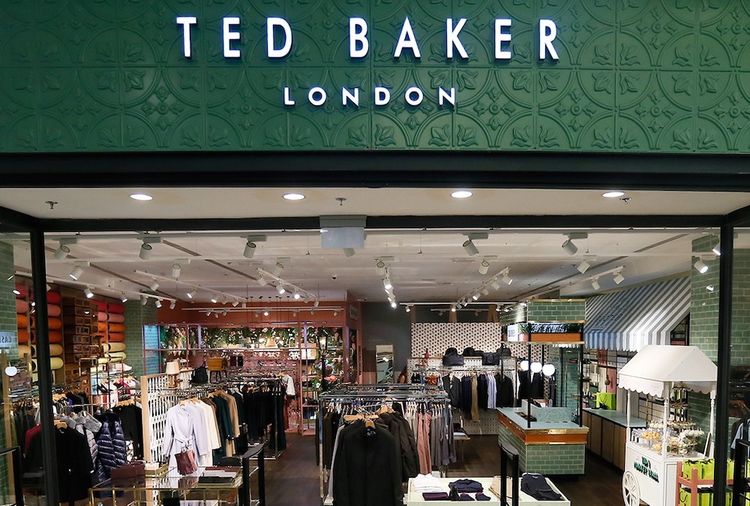As Ted Baker closes its remaining stores, what went wrong? - Retail Gazette

Ted Baker is preparing to shut down all of its remaining stores in the UK this week as uncertainties surrounding a possible licensing agreement with Mike Ashley's Frasers Group continue to rise.

However, how did a brand that was consistently successful less than a decade ago, find itself in this predicament? Retail Gazette delves deeper into the reasons behind Ted Baker's decline.
Ted Baker's UK operator, No Ordinary Designer Label (NODL), requested Teneo to act as administrators in March. NODL holds the brand licenses in the UK and Europe from Authentic Brands Group (ABG), a brand management group that also owns Reebok, Forever 21, and David Beckham. ABG purchased Ted Baker for £211m in October 2022.
ABG announced that NODL had accumulated a large amount of debt while working with AARC, the Dutch company contracted to manage Ted Baker's retail stores and online sales in the UK and Europe.
Even though ABG initially helped AARC by giving them a loan in October to help with their financial problems, they ended their partnership in February. ABG stated that AARC did not follow through on their promise to provide funding and meet their financial responsibilities.
John McNamara, who is the chief strategy and transition officer at ABG, expressed that despite their hard work, the harm caused by NODL's actions during their time at AARC resulted in insurmountable arrears for Ted Baker. He hoped for a better outcome for the employees and stakeholders.
The recent disagreements with licensees have had a significant impact on the company, but Ted Baker, which was once one of the UK's leading fashion brands ten years ago, has been steadily declining for a while now.
Catherine Shuttleworth, the CEO of Savvy Marketing, explains that there are several reasons for this trend. She points to a decrease in consumer spending on clothes, the rise in casual attire due to more people working from home, and the decline of traditional department stores.
She points out that customers used to have convenient access to Ted Baker through department store concessions, such as those in Debenhams, which are no longer available.
However, the issues with the brand existed before Debenhams went out of business in 2020.
Ted Baker's problems began when its founder and former CEO, Ray Kelvin, resigned in 2019 due to allegations of misconduct, which included accusations of 'forced hugging' of employees.
Kelvin created the brand Ted Baker around a charming fictional character that he saw as a reflection of himself. He even had his business card saying he was the person most like Ted.
After Ted Baker's unexpected exit, the brand's successful streak came to a halt due to a series of financial warnings and errors in accounting. Additionally, the company saw numerous shifts in its leadership team.
Shuttleworth believes that Kelvin was essential to the success of the business and that Ted Baker requires a leader who either founded the company or possesses a similar entrepreneurial spirit with a deep understanding of the brand.
His leaving made the business less strong, which could have been okay if the market was doing well. Shuttleworth says that now the business is in a tough market where only the best companies make it, and he doesn't think the business was very strong to begin with.
Staying Current And Relevant
Ted Baker has found it challenging to adapt and keep up with the changing trends in the fashion industry, unlike competitors like Reiss who have successfully modernized their offerings.
"I feel like the collection didn't progress much. Ted Baker, as a brand, requires constant innovation and freshness," Shuttleworth comments.
After Covid, the formal clothing market has shifted, but she points out that there has been a renewed interest in events like Christmas parties, weddings, and days at the races.
Many individuals desire to have opportunities to dress up and attend special events, but it seems like they are not fully taking advantage of those experiences.
Shuttleworth also mentions that they have not kept up with the latest marketing trends.
"I wouldn't describe it as having a significant presence on social media," she explains.
Even though the store has a large following of 1.4 million on Instagram, it only gets about 5 comments on each post. This puts them at a disadvantage compared to competitors who are effectively using social media to reach new audiences and stay current.
Nowadays, clothing companies need to have a solid social media presence in order to reach their target audience, especially as more and more people are shopping for clothes online.
She believes that having a social shopping plan is essential for a brand like Ted Baker.
Is There A Future For Ted Baker?
Even though there was optimism that Ted Baker could survive, administrators were reportedly in discussions with various companies such as Next and Frasers to potentially become the new operating partner for the brand in the UK and Europe.
The boss, Lord Wolfson, did not reveal much when asked by reporters in March. He mentioned that there were many discussions with potential equity partners about the acquisition, implying that it was a logical move.
In the meantime, Sky News announced that discussions between Frasers Group and Authentic Brands Group, the owner of Ted Baker, have come to a halt after appearing close to reaching an agreement three months ago. The group owned by Mike Ashley was reportedly in negotiations for a deal involving both Ted Baker and Reebok.
Apparel expert Louise Deglise-Favre from GlobalData suggests that Next is in a good position to acquire Ted Baker. This is because Next already has a partnership with Ted Baker for childrenswear, lingerie, and nightwear.
Even though Ted Baker may not be the first brand people think of anymore, it is still a famous British brand with a strong history. If Ted Baker can improve its financial situation, it has the potential to enhance Next's offerings.
Shuttleworth points out that by including Ted Baker on a popular platform such as Next or Frasers, the brand can reach a large number of potential customers who are already using the platform. This means that these customers can easily purchase Ted Baker products because they are already familiar with the platform and have either an account or a business relationship with it.
Reclaiming Former Glory
The person who takes control of Ted Baker must rethink the brand for modern consumers, according to Shuttleworth. He believes that Ted Baker has not progressed in the last ten years.
Deglise-Favre believes that one reason Ted Baker failed was because their products didn't match what customers wanted. They also think that changing the products to be more casual could help the brand succeed again.
"It can look to other high-end brands in the same category that are doing well, like Nobody's Child and Rixo," she suggests.
Some people may have anticipated the troubles at Ted Baker for a while now, but the brand still has a loyal following. With the right management, there is still a chance for a positive outcome. However, it seems that time is running out.
Sign up for Retail Gazette's daily newsletter for free by clicking here









































































